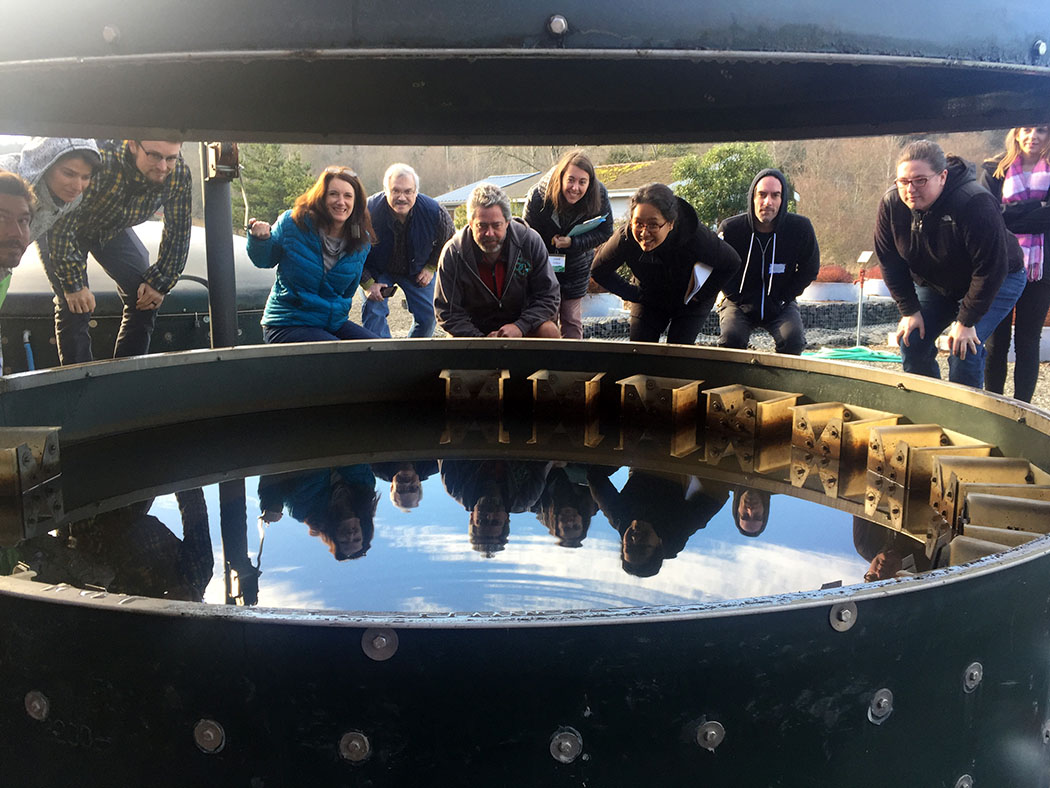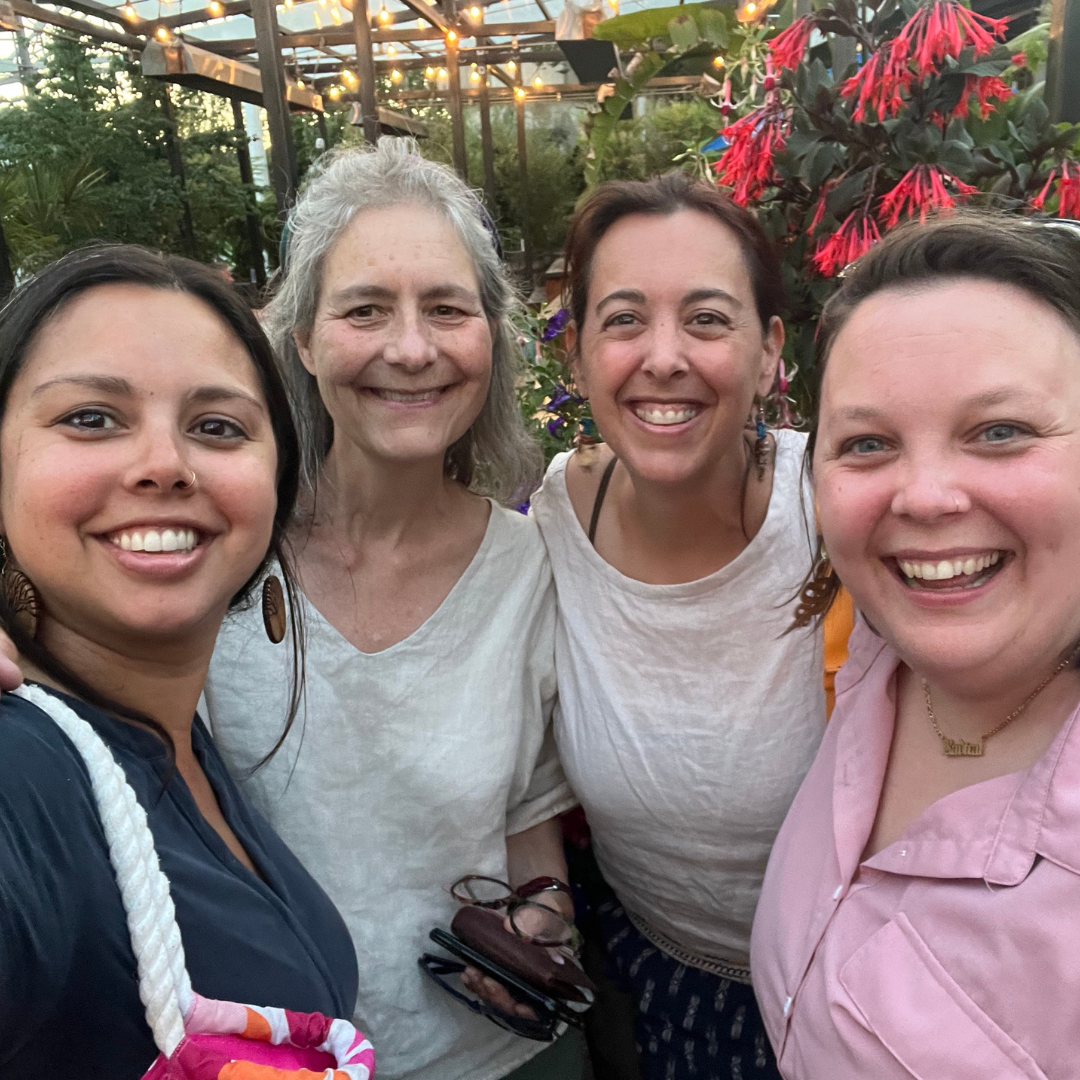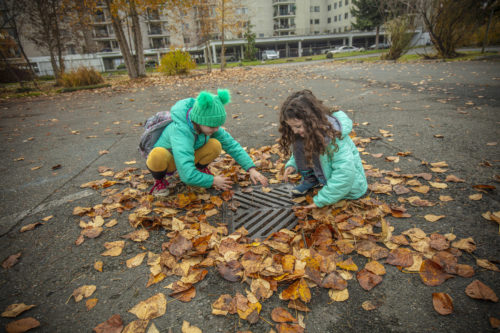In July, IslandWood graduate program faculty Dr. Déana Scipio, Dr. Priya Pugh, Renée Comesotti, and…
Author: Kristine Jimenez
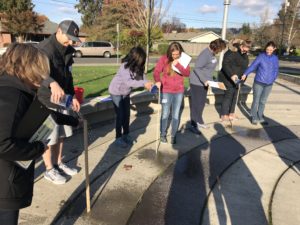
Teachers participate in a stormwater modeling exercise during an IslandWood professional development workshop.
This month we received the exciting news that IslandWood will receive its second grant from the Office of Superintendent of Public Instruction’s (OSPI) ClimeTime program to continue our teacher workshops and school-based supports. Our workshops and supports are designed to build teachers’ understanding of the Next Generation Science Standards and their confidence in connecting science learning to local environmental and climate science issues in students’ schoolyards and communities.
Results of Last Year’s Workshops and Support
Thanks to last year’s ClimeTime grant and partnerships with King County and others, IslandWood provided a tangible and meaningful benefit to 226 educators in the Puget Sound region. This included providing workshops and/or school-based supports to 174 elementary teachers, 19 middle school teachers, 11 high school teachers, six administrators or science specialists, and 16 informal educators or student teachers.
In an end-of-year survey of teachers, we saw the dramatic impact of this programming on teacher’s knowledge and comfort:
- Four out of five teachers made changes in how they taught;
- 95% reported understanding the Next Generation Science Standards (an increase of 35%);
- 99% reported being comfortable taking students outside (an increase of 23%);
- 88% reported understanding how to incorporate climate science education into their teaching (an increase of 56%); and,
- 87% intend to incorporate their schoolyard or local community into their teaching next year.
How Students are Already Benefiting
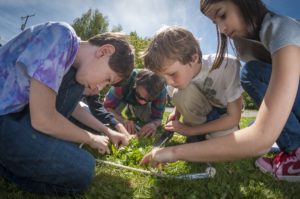
Students investigate their local environment.
Kerri Bailey, a 2nd grade teacher with Bonney Lake Elementary in Sumner, attended our Science in the Schoolyard and Urban Water Systems workshops last school year. We later visited her school for a planning session along with two of the school’s Kindergarten teachers. We walked their schoolyard and worked with the teachers to integrate their school’s unused nature trail into both grade’s curriculums. Brad Street, IslandWood Urban School Programs Manager, then modeled a lesson with the second graders where they used quadrants to look at differences in the number of insects they could find in different habitats.
“My students, as well as myself, participated in more STEM activities this year than ever before… [this professional development is] absolutely worthwhile,” said Ms. Bailey.
Her fellow Kindergarten teacher, Kari Shaw, who also participated in a workshop and the school-based planning session added, “I used to think I didn’t have time for science and I couldn’t manage it with 24 Kindergarteners. Now I think I can incorporate science into other subjects and can even take Kindergarteners outside!”
How You Can Get Involved
Teacher training is a critical and urgent strategy to prepare the environmental problem solvers our state and planet need, and we couldn’t be more thrilled to embark on a second year of ClimeTime programming and partnership. Our trainings start this August and run through February – you can find the schedule and links to sign up for trainings on our webpage.
If you want to dive deeper into the impact of last year’s teacher training programs, check out the full evaluation completed by MEMconsultants.
And be sure to thank your state senator and representative for prioritizing ClimeTime funding. These resources are critical for building the commitment and capacity of students in our state to solve the environmental problems of today and tomorrow.

